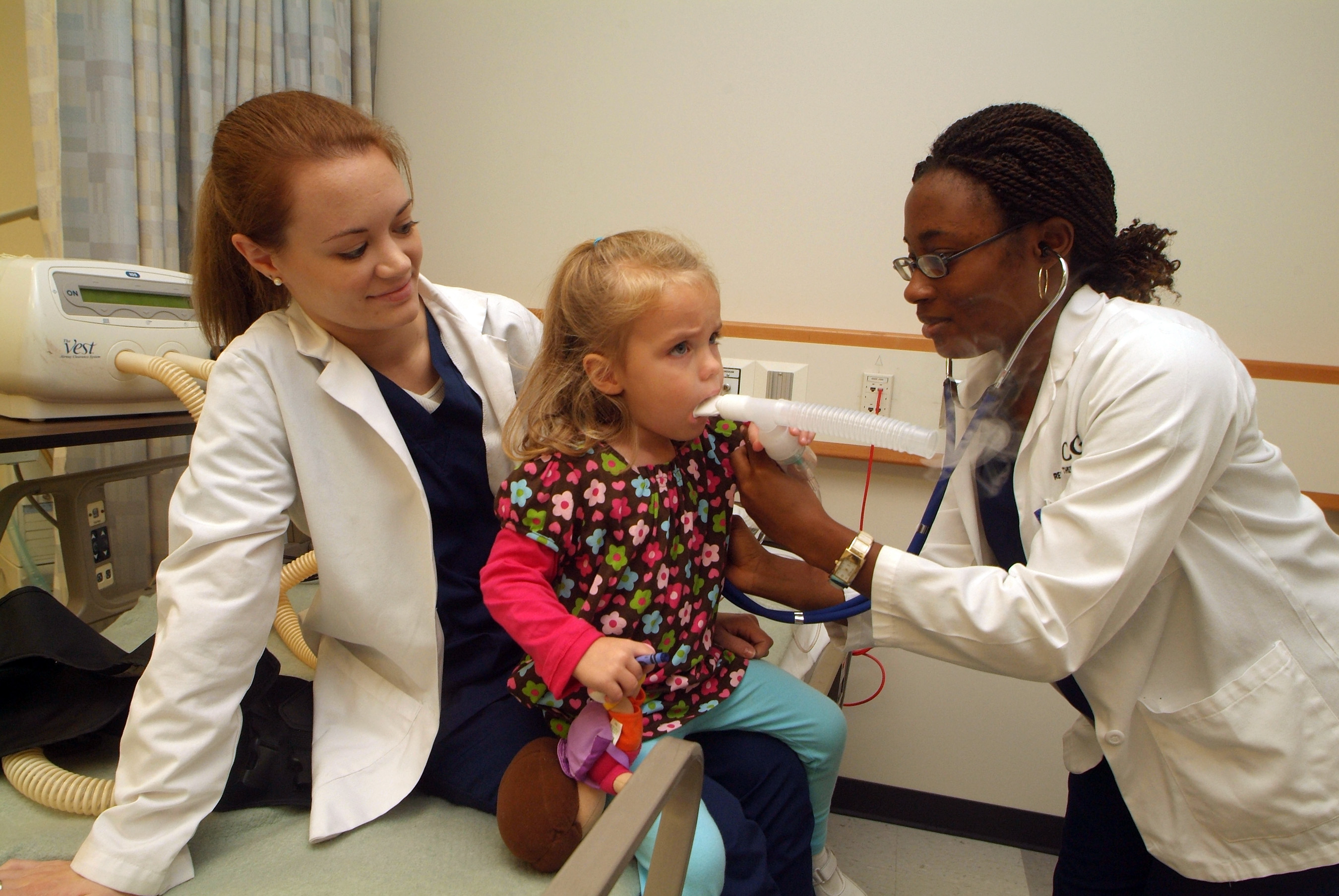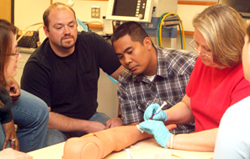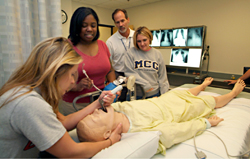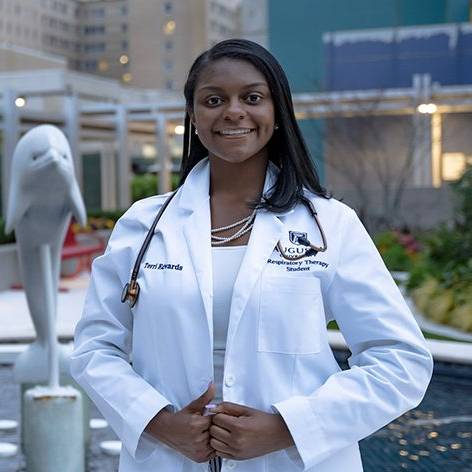|
In hospital settings a respiratory therapist:
- Assists physicians by assessing the patient's condition
- Plans and initiates treatment
- Provides patient education
Treatments provided by a respiratory therapist include:
- Oxygen and humidity therapy
- Chest physical therapy
- Cardiopulmonary resuscitation
- State-of-the-art life support technologies.
|
Program Goal
Our goal is to provide the education essential for graduates to meet the future challenges
they will encounter as respiratory therapy professionals. Specifically, the goal of
the Respiratory Therapy program is to prepare graduates with demonstrated competence
in the cognitive (knowledge), psychomotor (skills), and affective (behavior), learning
domains of respiratory care as performed by the registered respiratory therapist.
As a baccalaureate program we prepare leaders for the field of respiratory care by
including curricular content that includes objectives related to the acquisition of
skills in one or more of the following: management, education, research and/or advanced
clinical practice which may include an area of specialization.
Respiratory Therapy News
June, 2020Jagwire
Terri Edwards is graduating this month from Augusta University’s College of Allied
Health Sciences with a bachelor of science in respiratory therapy. However, she will
be the first to admit that she had no idea what one was when a professor recommended
she apply for the program.
Continue Reading
Professional Accreditation
The Augusta University Respiratory Therapy Program, CoARC #200224, Bachelor of Science
in Respiratory Therapy on the Health Sciences Campus in Augusta, GA holds continuing
accreditation status from the Commission on Accreditation for Respiratory Care (CoARC). This allows the graduate to enter the credentialing system by National Board for Respiratory
Care.
Licensure Disclosure Statement
The Department of Allied Health Professions has determined that the required classes
and educational activities of this academic program will qualify a graduate of this
program to take the national examinations for obtaining the Credentialed Respiratory
Therapist (CRT), Registered Respiratory Therapist (RRT). As such the program meets
licensure requirements in all 50 of the United States
Please note that the RPT program has not determined whether this program meets the
educational requirements of United States Territories since there are no laws or regulations
which specifically address licensure or practice requirements for Respiratory Therapy.
Program Outcomes
"CoARC accredits respiratory therapy education programs in the United States. To
achieve this end, it utilizes an 'outcomes based' process. Programmatic outcomes
are performance indicators that reflect the extent to which the educational goals
of the program are achieved and by which program effectiveness is documented."
In recognition of the program’s success in inspiring its graduates to achieve their
highest educational and professional aspirations the Respiratory Therapy Program was
awarded the Distinguished Registered Respiratory Therapist Credentialing Success by
CoARC four out of the last five years.
Additional program outcomes can be found at https://coarc.com/students/programmatic-outcomes-data/
Admissions
Which courses transfer?
If you are a current student at Augusta University visit the Transfer Equivalency Guide. Transferable courses are listed by state, college, and topic. If you have questions
after going to the Transfer Course Equivalency page contact the subject department
(English, math chemistry, etc.) or the program director of the Respiratory Therapy
program.
Prerequisite Course Requirements for Admission
What courses are required for transfer/admission to the program?
Criminal Background Check and Drug Screen: You must complete a criminal background check and drug screen before the start of
the program in order to participate in clinical internship courses. You will be notified
of how and when to complete these requirements and will be responsible for the associated
fees.
NOTE: If an adverse report is produced, there is a possibility you will not be accepted
by clinical affiliates. In this case, you may be unable to complete clinical internship
courses. Such circumstances will preclude your ability to successfully complete the
program.
|
Contact Us
user icon Program Director:Kitty Hernlen, Ed.D., MBA, RTT
location-arrow icon Health Sciences Campus
map-marker icon 987 St. Sebastian Way EC-4320, Augusta, GA 30912
phone icon 706-721-8741 | fax icon 706-721-2939
envelope icon khernlen@augusta.edu
|





